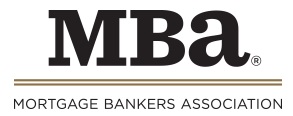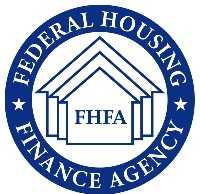WASHINGTON, D.C. – July 7, 2011 – (RealEstateRama) — David H. Stevens, President and CEO of the Mortgage Bankers Association (MBA), testified today before a joint subcommittee of the U.S. House of Representatives Financial Services Committee at a hearing titled “Mortgage Servicing: An Examination of the Role of Federal Regulators in Settlement Negotiations and the Future of Mortgage Servicing Standards.”Below is Mr. Stevens’ oral statement before the subcommittee, as prepared for delivery.
“Thank you for the opportunity to testify today on mortgage servicing issues and national servicing standards.
“We at MBA believe that a consolidated national servicing standard, if developed in a cooperative manner, could stimulate much needed reform of a residential mortgage loan servicing system that has admittedly failed a great number of consumers during the recent foreclosure crisis.
“In 2008 we faced a “perfect storm” as the global economy collapsed, the subprime market imploded, many Americans lost their jobs and millions of Americans defaulted on their mortgages, putting extraordinary strains on the existing servicing system. When this crisis hit, I was in the private sector running a large real estate firm. I saw first-hand the buy and sell sides of the business grind to a halt. All Members of these two subcommittees know from your own experiences the devastating impact that ensued.
“It is clear that the real estate finance industry as a whole was unprepared to handle these unprecedented events — and that mistakes were made. What brings us here today, and what is grossly lacking at every level within the industry, is “trust.” There is a lack of trust between borrowers and servicers. There is a lack of trust between servicers, regulators, the state AGs and the courts to find a joint solution as to how to equitably handle borrowers facing foreclosure. And there is a lack of trust between investors, underwriters, and credit rating agencies to restore private capital to the mortgage market in a meaningful way. Without trust, the housing industry goes nowhere. And by trust, I mean the ability of policymakers, borrowers and the industry at large to have faith in the products and services we provide, and how those loans will be serviced. We must do better moving forward.
“I am here today representing an important segment of the mortgage finance market. In my prior job as FHA Commissioner, you may recall that my staff and I worked hard to get bi-partisan support for FHA reform last year. That proposal passed this House overwhelmingly. Now here today, I believe the environment exists to reach similar consensus amongst regulators and stakeholders regarding national mortgage servicing standards. Certainly, the MBA will support such an effort.
“I can assure you that the mortgage finance industry and servicers have not stood still and we are constantly in the process of addressing our short-falls and implementing new programs and upgrades.
“Creating a truly national servicing standard would streamline and eliminate many overlapping requirements, providing clarity and certainty for servicers, borrowers, lenders and investors alike.
“It is critical that all of the federal regulators involved act in a coordinated manner to establish one national consolidated servicing standard that applies to the entire industry, rather than each piling on requirement after requirement.
“A national standard should start with a complete analysis of existing servicer requirements and state laws governing foreclosures. Development should include an open dialog with stakeholders in the servicing arena, all of whom must ultimately work together to ensure the standard achieves the dual goal of better serving borrowers while allowing for a sustainable mortgage servicing business model.
“MBA actually initiated this process in January by convening a blue-ribbon Council on Residential Mortgage Servicing. That Council examined the entire servicing model and is the basis for work that is currently underway to identify recommendations to improve the system for all stakeholders.
“In May, the Council released its preliminary White Paper. In it, the Council examined the current servicing model, educated the public on the role and compensation of servicers, and addressed popular misconceptions relating to servicing practices and incentives. I believe this White Paper has provided useful information to you and other policymakers that are currently engaged in this debate. I encourage your two subcommittees and the Congress to use MBA and its Council as a resource going forward.
“In conclusion, as we develop servicing standards, I urge you to pay careful attention to the interdependence of servicing and the impact that changes to the system will have on the economics of mortgage servicing, tax and accounting rules and regulations, and the effect of the new requirements on Basel capital requirements and on the TBA market.
“Servicing does not exist in a vacuum. Instead, it is part of a broader inter-dependent and inter-connected “ecosystem” that involves all the varied elements of the mortgage industry. The housing market remains fragile. Therefore, when considering changes to the current model, policy makers must be mindful of unforeseen and unintended consequences that could ultimately result in higher housing costs for consumers and reduced access to credit.
“I have spent more than thirty years in this industry. Despite what we have just lived through, and the challenges we continue to face, I am optimistic that we can successfully address the challenges in the mortgage servicing system.
“To both subcommittees and the full Congress, I would reiterate that MBA supports reasonable national servicing standards that apply best practices to the process to better serve the needs of borrowers, servicers, and investors alike.
“Again, we want to be part of the solution and look forward to working with you and other policymakers towards that end.”
###
The Mortgage Bankers Association (MBA) is the national association representing the real estate finance industry, an industry that employs more than 280,000 people in virtually every community in the country. Headquartered in Washington, D.C., the association works to ensure the continued strength of the nation’s residential and commercial real estate markets; to expand homeownership and extend access to affordable housing to all Americans. MBA promotes fair and ethical lending practices and fosters professional excellence among real estate finance employees through a wide range of educational programs and a variety of publications. Its membership of over 2,200 companies includes all elements of real estate finance: mortgage companies, mortgage brokers, commercial banks, thrifts, Wall Street conduits, life insurance companies and others in the mortgage lending field. For additional information, visit MBA’s Web site: www.mortgagebankers.org











